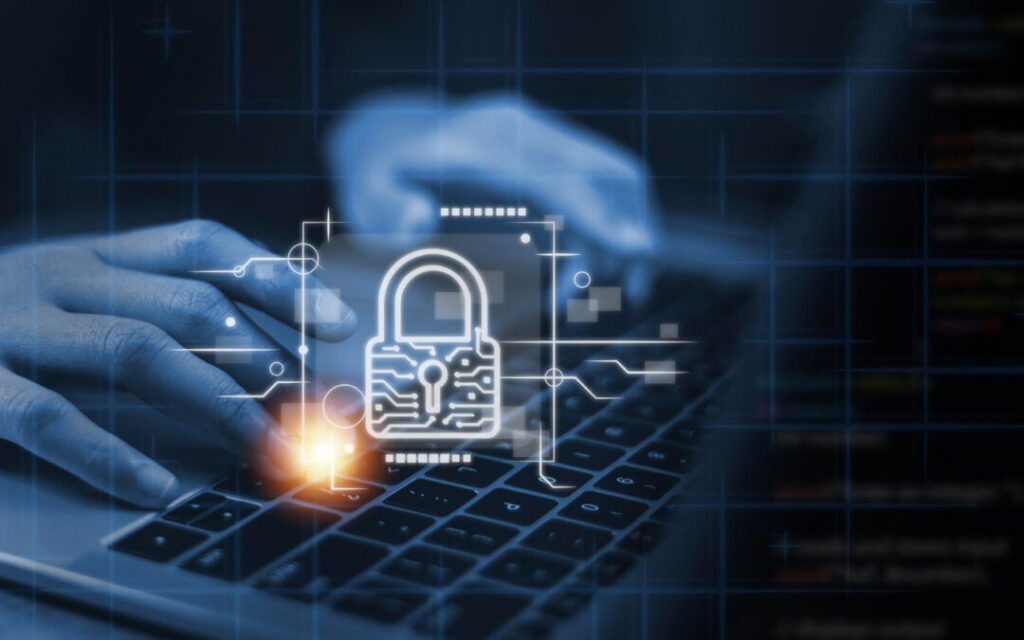Top 10 Tips For Evaluating The Compliance And Certifications Of A Cyber Security Service Company In Dubai Uae
1. Verify Certification AuthenticityBegin by verifying the authenticity of the company's certifications. Verify with the certification bodies or the authorities who issued the certificates to ensure they're current and valid. For instance, ISO 27001 and PCI DSS are significant certifications. Valid certifications prove that they are in conformity to cybersecurity standards.
2. Local Regulatory Compliance
Learn about local laws and regulations governing cybersecurity in the UAE like the UAE Data Protection Law and the Dubai Cybersecurity Strategy. Check that the company is adhering to the legal frameworks. If not, it could result in legal repercussions.
3. Assess Industry Specific Standards
Depending on what industry you are in, certain standards could be more applicable to your particular industry. Those in the healthcare industry may have to follow HIPAA regulations, whereas those in financial services need to adhere to PCI DSS. Assessment of industry-specific certificates ensures that a company has the required expertise in handling risks that are specific to the sector.
4. Request Documentation
You must provide detailed documentation to show conformity with the standards. This could include audit reports, security policies and risk management frameworks. These documents will provide you with more insight into how committed the organization is to cybersecurity and compliance.
5. Contact us about Third Party Audits
Check if your company is subject to regular audits by third-party auditors. Audits conducted by independent auditors are a great method of obtaining objective data about the compliance and security condition of a company. Find audits by respected firms to validate the company’s security policies.
6. Evaluate Continuous Improvement Initiatives
Cybersecurity has evolved and businesses must demonstrate that they are committed to improving. Check if the company regularly updates its policies and procedures to adapt to the latest threats and changes to regulations. This may require ongoing security updates and ongoing training.
7. Learn more about Employee Training Programs.
The employees who are trained can help secure a solid cybersecurity position. Find out about the company's education programs that focus on compliance and cybersecurity best practices. Regularly scheduled training sessions are essential to keeping employees abreast of the most recent threats and compliance requirements.
8. Review Incident Response Plans
Know the company's incident response procedures. A comprehensive plan for incident response must describe how the business handles data breaches. Verify that the processes conform to guidelines and regulations for compliance.
9. Find testimonials from customers as well as references
Client references can confirm the company’s compliance and certifications. Testimonials can provide an insights into the effectiveness and reliability in tackling cybersecurity risks, and allow you to gauge their reputation within the industry.
10. Research Industry Recognition
Check out the company's reputation in the cybersecurity community. It is possible to find professional awards, memberships, or recognitions that demonstrate the firm's commitment to security and conformity. A good reputation is often associated with the company's credibility and expertise. See the recommended Cyber security services for more recommendations including cyber security for beginners, security managed, cybersecurity for iot, security by design, security network security, careers in cyber security, information security description, cyber security projects, cybersecurity technologist, cyber security technology and more.

Top 10 Suggestions On How To Evaluate The Incident Response Capability Of A Cyber-Security Company
1. Learn about the incident response structure that your business has in your place. A clearly defined framework such as the NIST Cybersecurity Framework and the SANS Incident Response Process indicates that a business is following industry-leading practices for managing incidents. Be sure that they have a clear and well-organized approach to dealing with incidents.
2. Evaluate Incident Response Team Expertise
Assess the qualifications and experience of the incident response team members. You can look for certifications like Certified Incident Handler GCIH or copyright Security Professional copyright. Team members who are knowledgeable in the area of incident handling and mitigation will be able to efficiently manage and reduce incidents.
Check out past incident response case studies
Ask for instances of incidents the company has handled previously. Analyzing how they respond to actual situations will give you insights into their efficiency as well as their speed and overall strategy for managing incidents. Learn more about how they identified, managed and resolved issues.
4. Make sure you have a 24-hour emergency response Availability
Ask the firm if they offer an emergency response 24/7 to any incidents. An incident involving cybersecurity can happen any time. A team that is always available will help minimize damage, while also reducing recovery time.
5. Learn more about incident detection tools
Examine the tools and technology the company utilizes for incident detection and monitoring. Effective detection tools are vital for identifying threats quickly, including Security Information and Event Management System (SIEM) and intrusion detection systems (IDS).
6. Examine Communication Protocols
Investigate what the business's communication strategy is with its stakeholders during an event. Communication is crucial to coordinating the response, informing all parties and making sure everyone knows what their roles are in the event of an incident. Know how they can keep their clients up-to-date throughout the response process.
7. Review of Post-Incident Review Procedures
Ask about the company's review procedure following an incident. Conducting thorough reviews after an incident can help identify opportunities that need improvement. Watch for companies to implement changes in line with the review. This will strengthen any future response efforts.
8. Assess Strategies for Remediation and Recovery
It is crucial to know the tactics used by the company for the recovery and remediation after an incident. Recovery plans should include steps taken to restore data and systems as well as ensuring that weaknesses are taken care of in order for future incidents to be avoided. Ask about the approach they employ in restoring and strengthening their systems after an incident.
9. Examine compliance with regulatory requirements
Check that your company’s capabilities to respond to incidents are in line with applicable regulatory requirements. There may be industry-specific obligations for reporting and responding to incidents. It is essential to find a business that is aware of these rules in order to comply.
10. Request references and testimonials.
To gather references, inquire with existing customers if they have ever used the services of the company. Testimonials from customers are an excellent way to gain valuable insight on the effectiveness of, reliability and satisfaction by the company's response to incidents. Have a look at the recommended penetration testing company in uae for more tips including business and cybersecurity, security managed, cyber security technology, cyber security software, network security systems, computer security services, cybersecurity consulting services, cyber security in companies, network security and cyber security, cyber security education and more.

Top 10 Tips To Assess The Pricing Structure And Contracts Of A Cybersecurity Service Company
1. Understand Pricing ModelsFamiliarize yourselves with the various pricing strategies employed by your business. The most commonly used models are fixed-price contracts, hourly rate and subscription-based services. Understanding these models will help you determine how much money you are able to afford and the way that costs accrue over time.
2. Request quotes for more details
Get accurate quotes detailing all costs possible. A transparent quotation should include specific descriptions of the services provided, their associated costs, and any other charges that may arise. The clarity of pricing can prevent unexpected charges.
3. Review Service Packages
Find out if the business offers bundles of services. Bundling service packages can save you money compared to buying them individually. Look into the bundles that are offered to see what they are that meet your needs and provide financial benefits.
4. Ask about any additional costs
Don't be afraid to ask about hidden charges. These costs can include overtime charges, travel expenses or emergency support. Understanding the cost of ownership in total is vital to make sure you plan your budget in a precise manner.
5. Think about contract flexibility
Take a look at the flexibility of contracts. It is important to determine whether the contracts permit you to change your needs and to scale down or up the services offered. Contracts that are too rigid may result in unnecessary costs or limit service flexibility.
6. Be sure to check for requirements for long-term commitments
Find out if the pricing arrangement is linked to a commitment to a specific time. Certain companies might offer lower rates for longer contracts but could make you an extended commitment. Consider the advantages versus potential dangers if your needs alter.
7. Review of Termination Clauses
Review the clauses for termination in the contract. It is important to be aware of the terms and penalties that apply to the termination of the contract. A fair cancellation policy will give you the option of resolving your dispute when services don't match your expectations.
8. Compare the Payment Terms
Find out the payment conditions. Understanding when payments are due, whether installment payments are an option, and discounts provided for upfront payments are essential. The clarity of the payment terms is crucial for cash flow management.
9. Clarification on SLA Penalties
Review the Service Level Agreements, especially the penalties for failing to maintain service levels. Knowing these penalties will help you understand the company's commitment towards high-quality service and accountability.
10. Compare to Competitors
Review the contract and pricing terms of the cybersecurity service providers in Dubai or the UAE. This benchmarking will allow you to evaluate the degree of competition and the value you receive for your investment. Follow the top rated iconnect for more tips including computer security services, security ot, cyber security company, best cybersecurity firms, it security logo, basic cyber security, information and cyber security, information security information, cyber security consulting company, info security and more.

Comments on “30 Top Pieces Of Advice For Deciding On A Cybersecurity Company in Dubai”